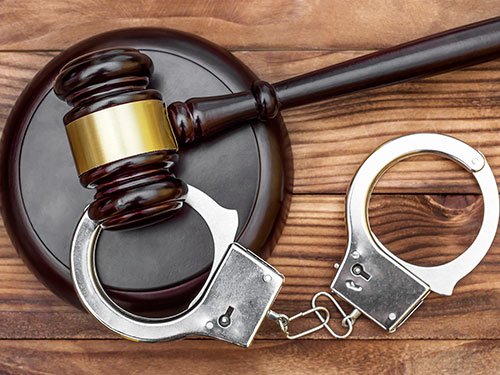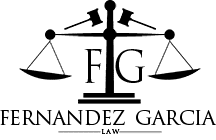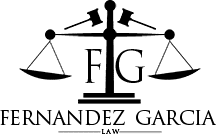
31 Jan Article I – Arrest Through Grand Jury
When you are arrested, you enter a world that is very unfamiliar and appears daunting. The first and most important thing you must do is contact a criminal defense attorney as soon as possible to guide you through this journey. Only an experienced criminal defense attorney knows how to navigate these very important phases of a criminal prosecution. Second, you should always maintain your right to silence. Third, you should never discuss the facts of your case with anyone or on any type of social media. That means, do not post anything about on Facebook, Instagram, Twitter, Snap Chat or any other social media.
In the meantime, in the first few hours you may feel that people around you are speaking some unknown language. At this very early stage, it is important that you quickly familiarize yourself with this new language. Therefore, I will demystify this new language by giving you the definitions of some of the terms that are commonly used. In this section, I will provide you a brief overview of the adult criminal justice system in New Jersey from arrest through Pre-Grand Jury proceedings.
Let’s look at some of the acronyms and shorthand terms that are used in the adult criminal justice realm.
ARREST AND BAIL
| Symbol, Term or Acronym | Meaning |
| Assistant Attorney General or “AAG” | An Assistant Attorney General is the person who is representing the State in a criminal matter brought by the Attorney General. |
| Assistant Prosecutor or “A/P” | An Assistant Prosecutor is the person who is representing the State in a criminal matter brought by the County Prosecutor. |
| Caption of the case | “Caption of the case” means the name of a case. In New Jersey, criminal cases are captioned “State of New Jersey v. (Name of Defendant)”. |
| Defendant | The person charged with a crime or offense |
| Deputy Attorney General or “DAG” | A Deputy Attorney General is the person who is representing the State in a criminal matter brought by the Attorney General. |
| Disorderly persons offenses | Disorderly persons offenses have a maximum exposure of 364 days of incarceration. Incarceration is typically served in a County Correctional Facility. |
| District Attorney | New Jersey does not have District Attorneys. In New Jersey, the State is represented by an Assistant Prosecutor. |
| First appearance | The time that a defendant is first informed of his or her formal charges on the complaint. |
| Felony | New Jersey does not have “felonies”. In New Jersey, felonies are called “indictable crimes”. |
| Indictable Crimes | An indictable crime is any crime that has a minimum exposure of over one year incarceration in a New Jersey State Prison. |
| Misdemeanors | New Jersey does not have “misdemeanors”. In New Jersey, misdemeanors are called “disorderly persons offenses”. |
| PC or Probable Cause | Probable Cause is a reasonable and articulable suspicion that a crime has been committed. |
| Remand a Defendant | To send the defendant back to jail or to keep a defendant in custody. |
| ROR | Released on one’s own recognizance means that a person is released from custody without any financial conditions. |
| S | Summons is a charging document. |
| W | Warrant is a charging document where an arrest is imminent or an arrest is mandatory |
In most cases, when a person is arrested, the officer can obtain pedigree information from the individual. Pedigree information includes name, date of birth and address. The officer may also fingerprint and photograph the arrestee.
A police officer must read the arrestee his or her Miranda rights before the officer initiates an interrogation. However, an officer is not required to issue Miranda rights to a person who voluntarily speaks to an officer.
After arrest, a defendant appears before a Judge for a first appearance. It is important to note that as of January 1, 2017, New Jersey has implemented the Bail Reform and Speedy Trial Act (hereinafter “Bail Reform”). As part of Bail Reform, the Judge will consider a number of factors to determine (1) whether or not the defendant should be released and, if released, (2) under which conditions should the defendant be released.
At this hearing, it is important to keep several things in mind. First, first appearances for those who are incarcerated may not be open to the public. Second, first appearance for those who are incarcerated typically occur in the correctional facility. Third, the State can file a motion to delay a defendant’s release if the State can demonstrate certain factors. Presuming the State is successful, then the Judge may order the defendant remanded for a more complete detention hearing. This hearing typically occurs with 72 hours of the first appearance.
After this hearing, a defendant will typically be given notice of his/her Pre-Disposition Conference Date.
PRE-DISPOSITION CONFERENCE
| Symbol, Term or Acronym | Meaning |
| Accusation | Accusation is a formal complaint which outlines the charges to which the defendant agrees to plead guilty. |
| Amend a charge | To change the crime to something that is different than the crime with which the defendant is current charged. |
| Concurrent or “c/c” or “cc” | When a sentence is concurrent to another sentence, that means a defendant will serve both sentences at the same time. |
| Consecutive or “c/s” or “cs” | When a sentence is consecutive to another sentence, that means that defendant must complete the first sentence before he or she can begin the second sentence. |
| Discovery | Discovery is the reports, statements, photographs or other materials that the State has in its possession regarding the facts of a particular case. |
| Downgrade a charge | To change the crime to something that is less severe than the crime with which the defendant is current charged. |
| Plea form | Typically, a pre-printed form which lays out all parts of the plea including the plea offer, recommended sentences, any dismissals, fines, penalties and any special conditions of the plea. |
| Plea offer | Plea offer is the offer that the State is offering the defendant to resolve the matter during this stage of the proceeding. |
| Pre-Disposition Conference or “PDC” | Pre-Disposition Conference or PDC is the conference or series of conferences that occur between the First Appearance and the time that the matter is transferred to the Grand Jury. The difference between PDC and PIC is just how the individual county labels this process. |
| Pre-Indictment Conference or “PIC” | Pre-Indictment Conference or PIC is the conference or series of conferences that occur between the First Appearance and the time that the matter is transferred to the Grand Jury. The difference between PDC and PIC is just how the individual county labels this process. |
| Pre-Trial Intervention or “PTI” | Pre-Trial Intervention or PTI is a diversionary program to which a defendant may apply if s/he has never been involved with the criminal justice system. |
| Remand a case | The State may determine that the case is more appropriately suited for prosecution in Municipal Court. The charge may be amended and sent to Municipal Court. |
At PDC or PIC, a defendant is typically provided with discovery and a plea offer. At this time, defendants who qualify for PTI may apply for the program.
If a defendant applies for PTI, he or she will be given a date to conduct an interview with probation. After the interview, probation will conduct an investigation to determine if the defendant applicant qualifies for PTI.
If a defendant does not qualify for PTI and does not want to accept the plea offer, then the Assistant Prosecutor will present the matter to the Grand Jury for its consideration.
If, however, a defendant does not qualify for PTI and does want to accept the plea offer, then the State will complete several forms, including, an Accusation and a Waiver of Indictment. The defense attorney and the defendant will review and sign those forms. In addition, the defense attorney and the defendant will also complete and sign a plea form. The defendant should review these pages very carefully to make sure that the entire agreement is accurately reflected on the plea form.
It bears repeating, you must contact a criminal defense attorney as soon as possible. Only an experienced criminal defense attorney knows how to navigate these very important phases of a criminal prosecution.

